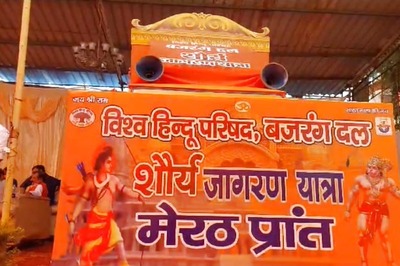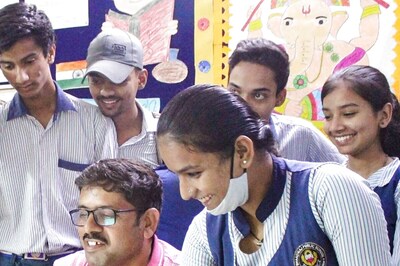
views
Tokyo: Last year, a relatively unknown movie, Alankrita Srivastava's Hindi language Lipstick Under My Burkha or Lipstick Waale Sapne, screened at the Tokyo International Film Festival, made waves in India this year. The story of four women – two Hindus and two Muslims – living in Bhopal who dared to dream, Lipstick Under My Burkha ran into a massive censorship problem with the chief of Central Board of Film Certification, Pahlaj Nihalani, refusing to certify the movie on a vague ground. Finally, Srivastava's work was allowed to pass through, and it proved to be a hit with the audiences.
This time, Deb Medhekar's debut, Hindi-language feature, Bioscopewala, is part of the Ongoing Tokyo International Film Festival's 30th edition, and is all set to compete under a sidebar termed Asian Future.
Part of the Festival's several world premieres, Bioscopewala is a contemporary take on Rabindranath's Tagore's immortal classic, Kabuliwala. Narrating the story of a daughter's search for truth after her celebrated photographer father goes missing on a flight to Kabul, Bioscopewala is layered with a subplot about an old Afghan man who comes out of jail and evokes nostalgic memories of the girl's childhood.
Apart from Medhekar's work, there are two Indian entries, Sanal Sasidharan's Sexy Durga in Malayalam – now renamed as S Durga after the Board refused to let it pass with the original title – and Pushkar-Gayathri's gripping Tamil rendering, Vikram Vedha.
The young Sasidharan told me last November at Goa's Film Bazaar, organised by the National Film Development Corporation of India, that he could have named his movie Saraswathi or Anjali or Parvathy. Durga was just another name.
Shot without a script and in just 20 days, S Durga – which I saw at the Bazaar -- is a sort of road film that opens with a woman, Durga (Rajshri Despande), anxiously waiting on a deserted street in the middle of the night -- till Kabeer (Kannan Nair) arrives. We do not know whether they are married, but we are sure that they are eloping from an undisclosed destination to Chennai. They have to reach a train station, and have to thumb a lift to get there. Unfortunately, the small van that stops by has two men, all sozzled up. And the ride for the couple turns nightmarish.
There is a powerful message in the movie: how men who are ardent devotees of Durga by the day turn into monsters at night, and Sasidharan weaves this text dextrously into his narrative. The helmer has this fantastic ability to convey fear without actually resorting to violence and bloodshed. Throughout the long night that the couple spend in the van, there is no blood or gore. Not even a hint of these, but nonetheless, in a very Hitchcockian style, the scenes seem pregnant with panic.
As Sasidharan quipped: “The threat of violence and the possibility of violence are far more rattling to the human psyche than actual force and ferocity are". Indeed, he shows these through magnificent minimalism.
Vikram Vedha is another marvellous movie. Staring two actors with rivetingly different styles, Madhavan and Vijay Sethupathi, the film narrates the story of a cat-and-mouse game played by a ruthless encounter cop and a hardened-by-circumstance don. The plot may not be exactly oven fresh, but the ability of the husband and wife team helming the movie to adapt the age-old, but timeless folklore of King Vikramadityan and Vedhalam (Betal) to the crime and criminality of modern times is what endeared Vikram Vedha to me.
The narrative is stylishly crisp, the craft flies, and the subtlety seen through the imaginative choice of colours (white, black and grey and the way they change on the costumes of the protagonists) as well as the unbelievable casualness of Vijay Sethupathi as gangster Vedha push the picture to the point of near perfection.




















Comments
0 comment